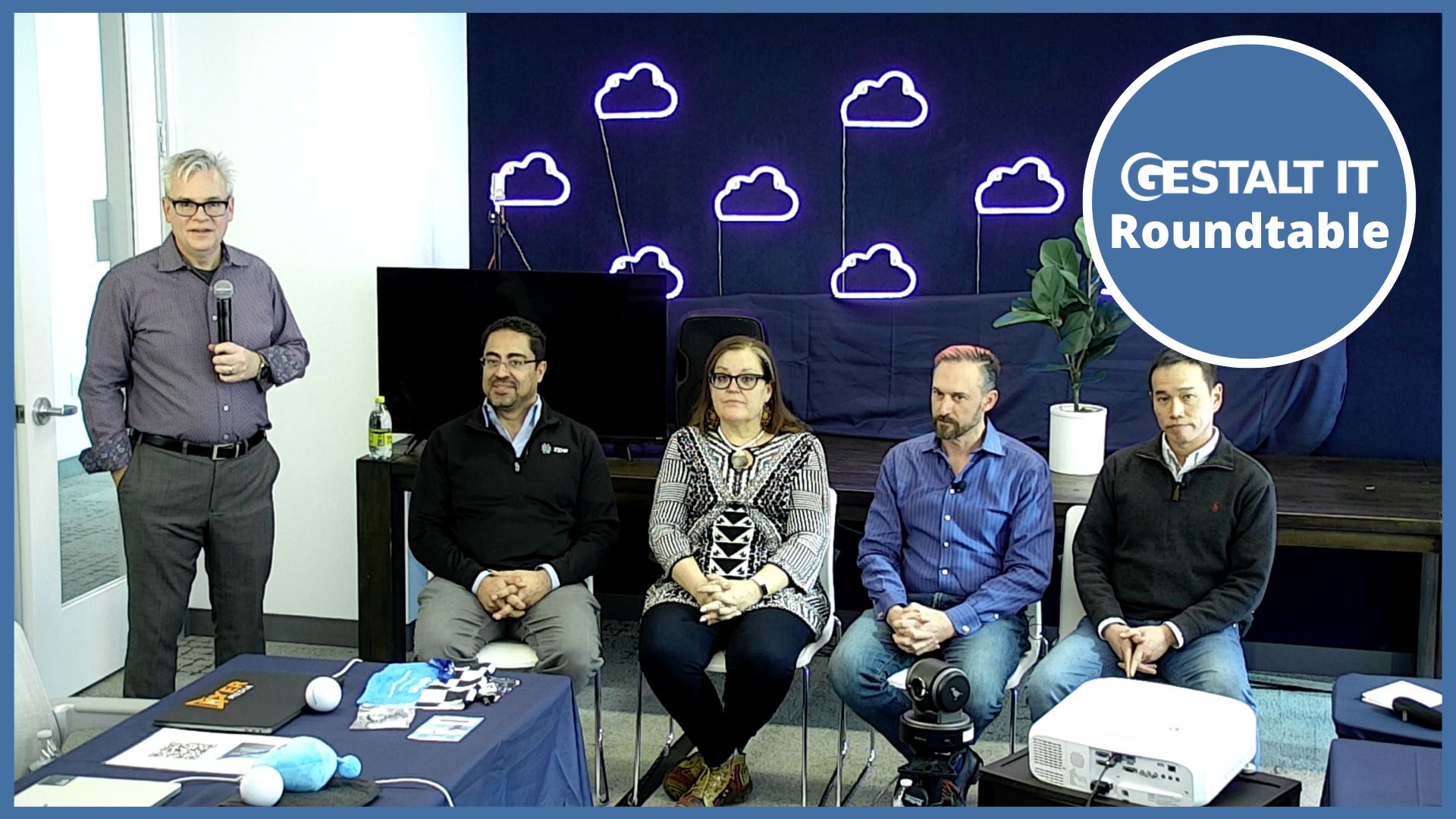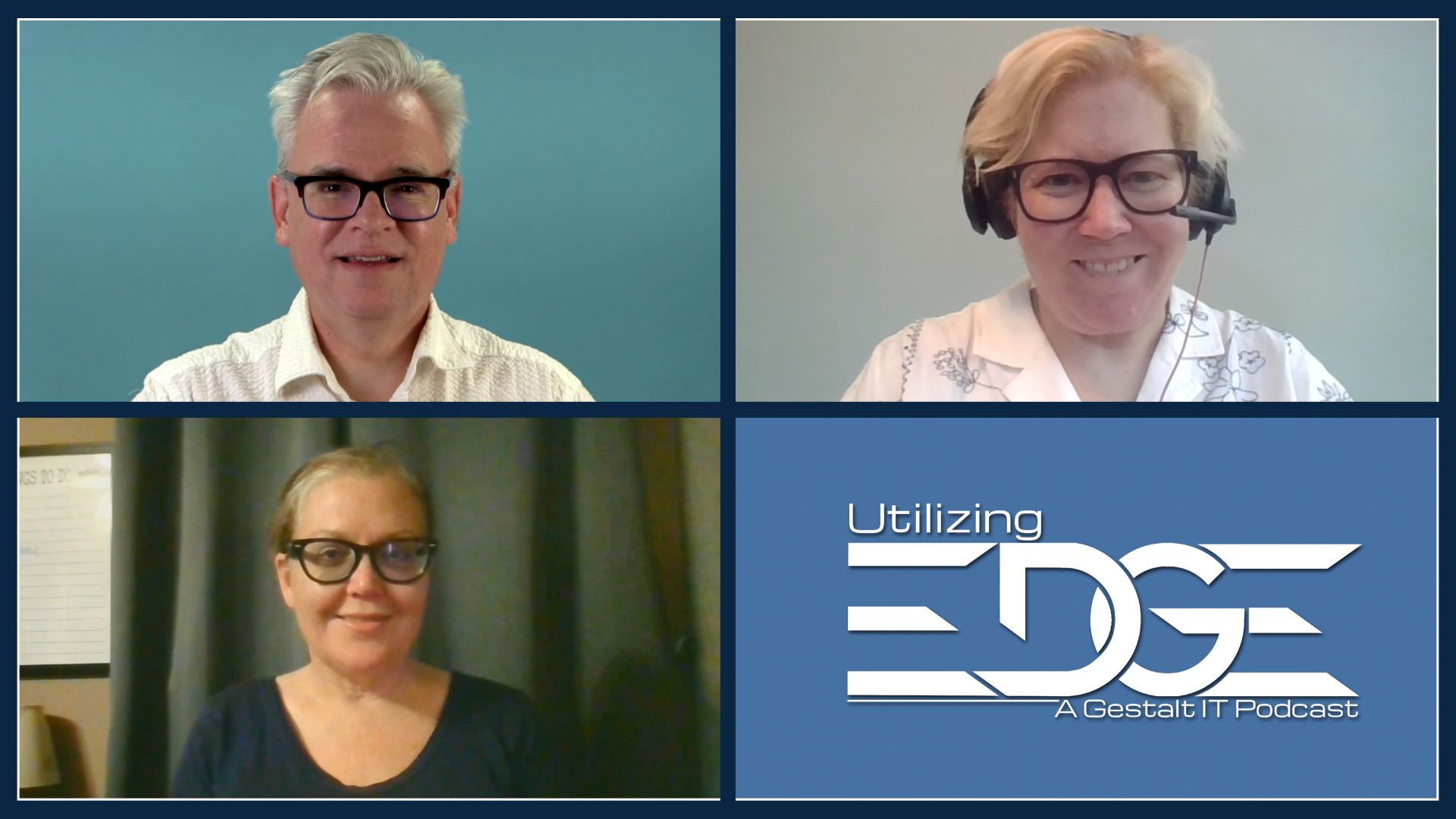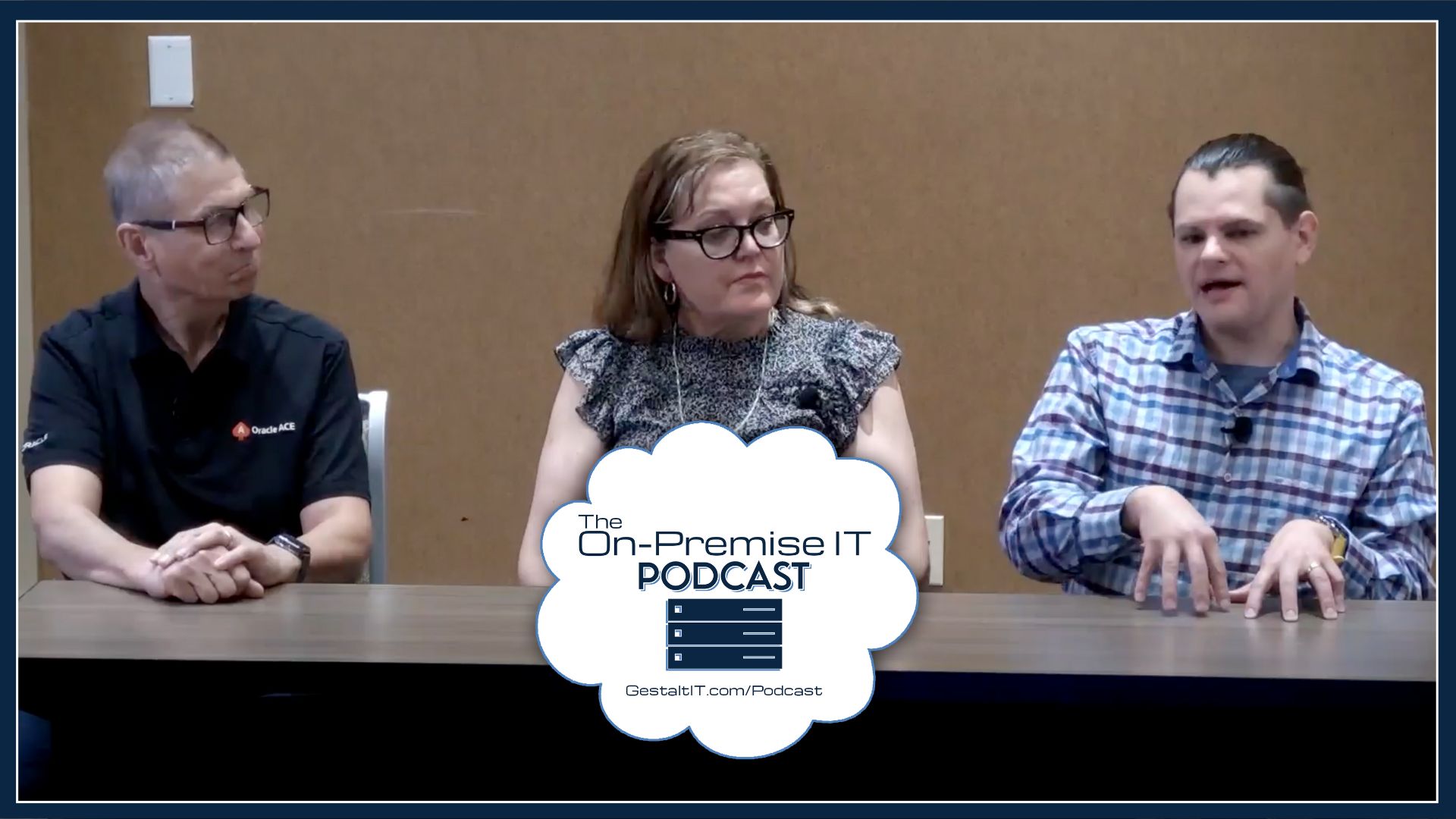 Gina Minks is an experienced sysadmin, storage professional, and Product Marketing Manager at VMware.
Gina Minks is an experienced sysadmin, storage professional, and Product Marketing Manager at VMware.
You can follow her on LinkedIn, Twitter, her blog, or in the Gina Mink Daily.
What’s your IT origin story?
I did things a little differently. I was married when I was a teenager, had 2 kids right away, got divorced (because I was married as a teenager! ?). I started community college on a displaced homemaker program. They tried to talk me out of the Electronic Engineering Technology program, but I really wanted it. That is an AS degree that has lots of the same curricula as the 1st two years of an EE degree. I learned how to design and build circuits, and solder (I hated that class). I wrote a paper on how to build an ISP for my independent study class, and taught my instructors how to write HTML.
I had to stick around another year to get an AA degree so that I could transfer to a 4 year college. I tool COBOL as an elective. I transferred to Florida State University and got a BS in Information Studies. It was a new degree in the School of Library Science, where we had to have programming classes to get into the program and take more programming to graduate. The program built library science principles into designing systems to store information. We learned how to build a system to store information based on information needs and information seeking behaviors of people who would use the systems.
I also had a paid internship at the University’s Career Center. I had to maintain 3 student labs (desktops, software to write resumes, printers, etc). I also had to maintain the website used to advertise the companies that came to the job fairs. We wrote the page content in FrontPage, the data was stored in Access database. The site was hosted on an AIX server. So I’d make sure the employers were in the database, make sure the FrontPage looked ok, upload it to the AIX server, then use VI to delete all of the garbage FrontPage added to the HTML. EMC offered me a job because I had experience with UNIX.
I took the job, and moved my kids and I to Massachusetts to work as a Technical Trainer for EMC. One of my first tasks was teaching EMC’s mainframe field folks how to connect EMC storage to AIX, HPUX, and Solaris.
How long have you been in the field?
About 20 years?
What’s been the biggest change in IT since you started your career?
To date, I’d have to say virtualization. It has enabled us to do more in datacenters, and it has fueled cloud computing.
Current worst trend in IT?
Hype in general. Marketers posing as technologists that use social media popularity as technical authority. That hype masks important information from less flashy sources, and it weakens our field.
Current best trend in IT?
HPC/Machine Learning/Deep Learning/AI. I believe this is truly the next big shift in how we do computing.
Buzzword that irks you.
“On premise”. I’m in the camp that words matter, and on premise is not the same as on premises. It’s distracting and we as product people especially should do better.
 How do you approach organization at work?
How do you approach organization at work?
I tend to have my goals in Trello (although I’m starting to use the O365 apps more and more). I like the Kanban style, so if I don’t need to drive a program with other people I tend to keep my tasks in the Trello style. Since my team is in Palo Alto and I’m in Austin, AND I’m a morning person, I try to get as much writing and program/project documentation done in the mornings.
I tend to review email, set/move meetings, and go through project boards first. Then I set a day aside to do the project work. Once my team gets online its meetings meetings meetings.
Of course that’s if there isn’t a fire drill. Then I do my best to keep all the fires burning.
What are your must use apps?
Trello, Slack, Notepad. I also use LinkedIn a lot. I read a lot to understand the market and products, so I need to know where people work and what their experience is to understand if I can trust what they write.

A happy place
What’s your ideal workspace?
It depends on what I’m doing. If I’m calls all day, my couch with my dog nearby. If I’m in research mode, quiet chill places with good music (Flight Path Coffee is my happy place in Austin for that). If I’m writing or working in spreadsheets, my desk with my 2 huge monitors.
 Book recommendations for other IT pros (besides The Phoenix Project?).
Book recommendations for other IT pros (besides The Phoenix Project?).
- Disrupted by Dan Lyons
- The Information by James Gleick
- The Wealth of Networks by Yochai Benkler
What are you reading now?
WTF?: What’s the Future and Why It’s Up To Us by Tim O’Reilly

Possibly Gina’s first computer
First computer you owned.
I grew up really poor, so we didn’t have a computer in the house when I was young. I used Pell grant money to get my first computer, it was from a big box store (maybe Office Depot??). I’m pretty sure it was a Compaq, definitely Windows 95. I only got it because I had to do labs on breadboards, and those were in a classroom about 30 minutes from where I lived. They also were so old and used up that they only worked half the time (after you hit them on the side a few times). A new software had been released that allowed you to do labs on a desktop, and I felt like I should buy a computer to do my work at home.
What do you do when you’re not working in IT?
Watch bad TV, go to movies, go to see bands, go hiking with my dog, can foods.
How do you caffeine?
I’m trying to get back to this (holidays got me into bad habits), but my goal is to only drink 1 cup a day. There are so many good brands of coffee to buy in Austin, so I make a cup to drink on my way to work. I love decaf almond milk lattes – does that count? ?
Who do you want to see answer these questions?
Yanbing Li, Chad Sakac, Rawlinson Rivera, Rob Hirschfield
Best career advice you’ve received.
“Take jobs that keep you close to the product and technology, or close to the customer. If you can, find one that does both”. That’s why I love being a Product Marketer, I get to do both.




